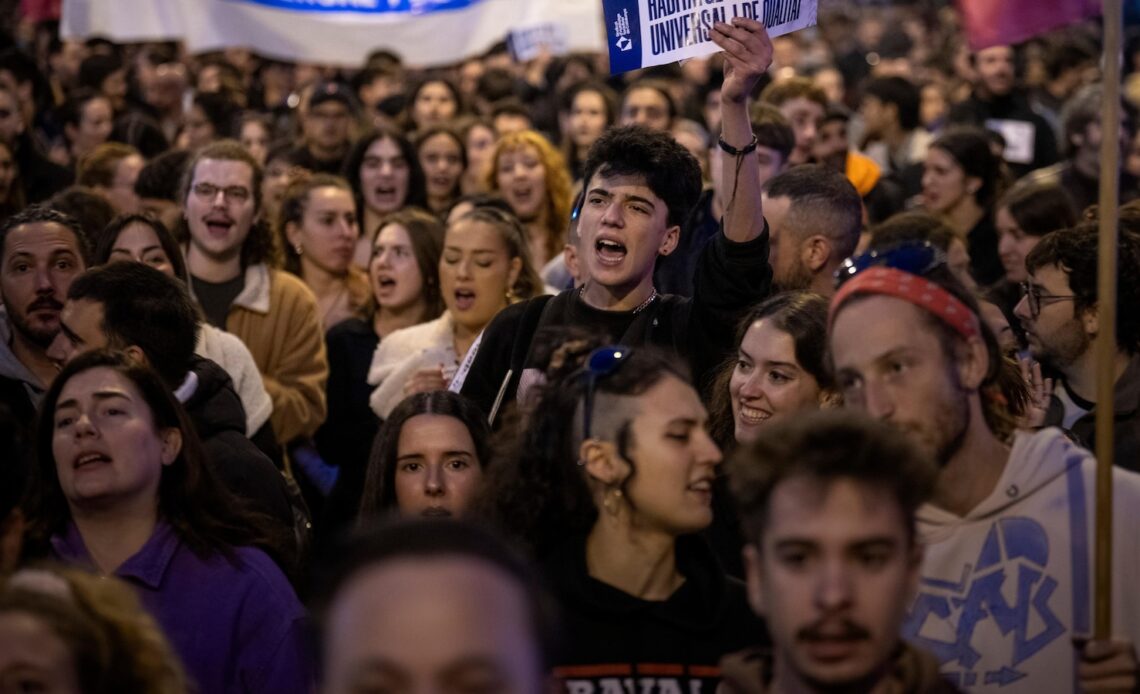BARCELONA, Spain — Tens of thousands of Spaniards marched in downtown Barcelona on Saturday to protest the skyrocketing cost of renting an apartment in the popular tourist destination.
Protesters cut off traffic on main avenues in the city center, holding up homemade signs in Spanish reading “Fewer apartments for investing and more homes for living” and “The people without homes uphold their rights.”
The lack of affordable housing has become one of the leading concerns for the southern European Union country, mirroring the housing crunch across many parts of the world, including the United States.
Organizers said that over 170,000 had turned out, while Barcelona’s police said they estimated some 22,000 marched.
Either way, the throngs of people clogging the streets recalled the massive separatist rallies at the height of the previous decade’s Catalan independence movement. Now, social concerns led by housing have displaced political crusades.
That is because the average rent for Spain has doubled in last 10 years. The price per square meter has risen from 7.2 euros ($7.5) in 2014 to 13 euros this year, according to the popular online real estate website Idealista. The growth is even more acute in cities like Barcelona and Madrid. Incomes meanwhile have failed to keep up, especially for younger people in a country with chronically high unemployment.
Protester Samuel Saintot said he is “frustrated and scared” after being told by the owners of the apartment he has rented for the past 15 years in Barcelona’s city center that he must vacate the premises. He suspects that the owners want him out so they can renovate it and boost the price.
“Even looking in a 20- or 30-kilometer radius outside town, I can’t even find anything within the price range I can afford,” he told The Associated Press. “And I consider myself a very fortunate person, because I earn a decent salary. And even in my case, I may be forced to leave town.”
A report by the Bank of Spain indicates that nearly 40% of Spaniards who rent dedicate an average of 40% of their income to paying rents and utilities, compared to the European Union average of 27% of renters who do so.
“We are talking about a housing emergency. It means people having many difficulties both in accessing and staying in their homes,” said Ignasi Martí, professor for Esade business school and head of its Dignified Housing Observatory.
The rise in rents is causing significant pain in Spain, where…
Click Here to Read the Full Original Article at ABC News: Business…

